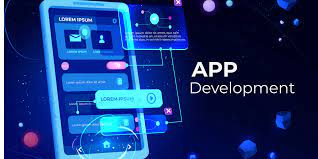
App development, short for application development, refers to the process of creating software applications designed to run on specific platforms or devices. These applications, commonly known as "apps," can serve various purposes, from providing entertainment and information to facilitating productivity and communication. App development encompasses a range of activities, including coding, design, testing, and deployment, with the goal of creating a functional and user-friendly software product.
Here are key aspects of app development and reasons why it is essential:
Apps are designed to run on specific platforms or devices, such as iOS for Apple devices, Android for Android-based devices, or Windows for Windows-based devices. App development ensures compatibility with the target platform, optimizing the user experience for that specific environment.
App development focuses on creating intuitive user interfaces and positive user experiences. Well-designed apps enhance usability, engagement, and satisfaction, leading to increased adoption by users.
Apps can leverage the features and capabilities of the underlying device, such as camera, GPS, sensors, and other hardware components. This allows for the creation of rich and feature-packed applications tailored to specific user needs.
Many apps are designed to function even when the device is not connected to the internet. This offline capability is essential for users in areas with intermittent connectivity or for those who want to use the app on the go.
App development enables the implementation of push notifications, allowing apps to send real-time updates and alerts to users. This feature is valuable for communication, engagement, and timely information delivery.
App development includes the process of distributing applications through app stores (e.g., Apple App Store, Google Play Store). App stores provide a centralized platform for users to discover, download, and update apps, simplifying the distribution process.
For businesses and developers, app development opens up various monetization opportunities. This can include selling apps, offering in-app purchases, displaying ads, or implementing subscription models, contributing to revenue generation.
Creating a branded app increases visibility and strengthens a brand's presence. Apps can be used as marketing tools, helping businesses reach and engage with their target audience more effectively.
Apps provide a direct channel for businesses to engage with their customers. Loyalty programs, personalized content, and exclusive offers can be integrated into apps to enhance customer relationships.
App development allows for the integration of analytics tools to collect data on user behavior, preferences, and interactions. This data is valuable for understanding user patterns, improving app features, and making informed business decisions.
In many industries, having a well-designed and functional app is a competitive advantage. Users often prefer the convenience of accessing services or information through dedicated apps, and businesses that provide this experience gain a competitive edge.